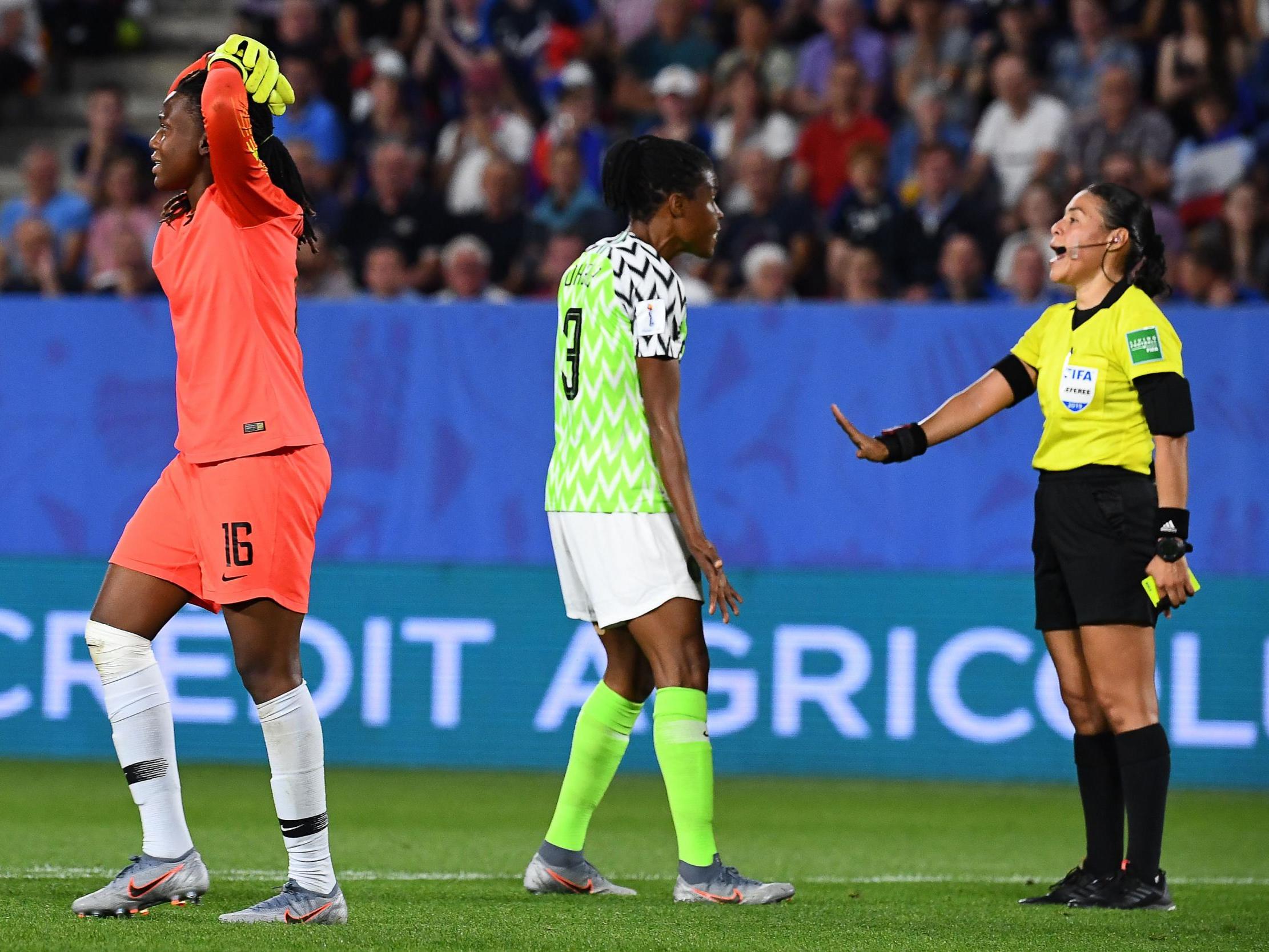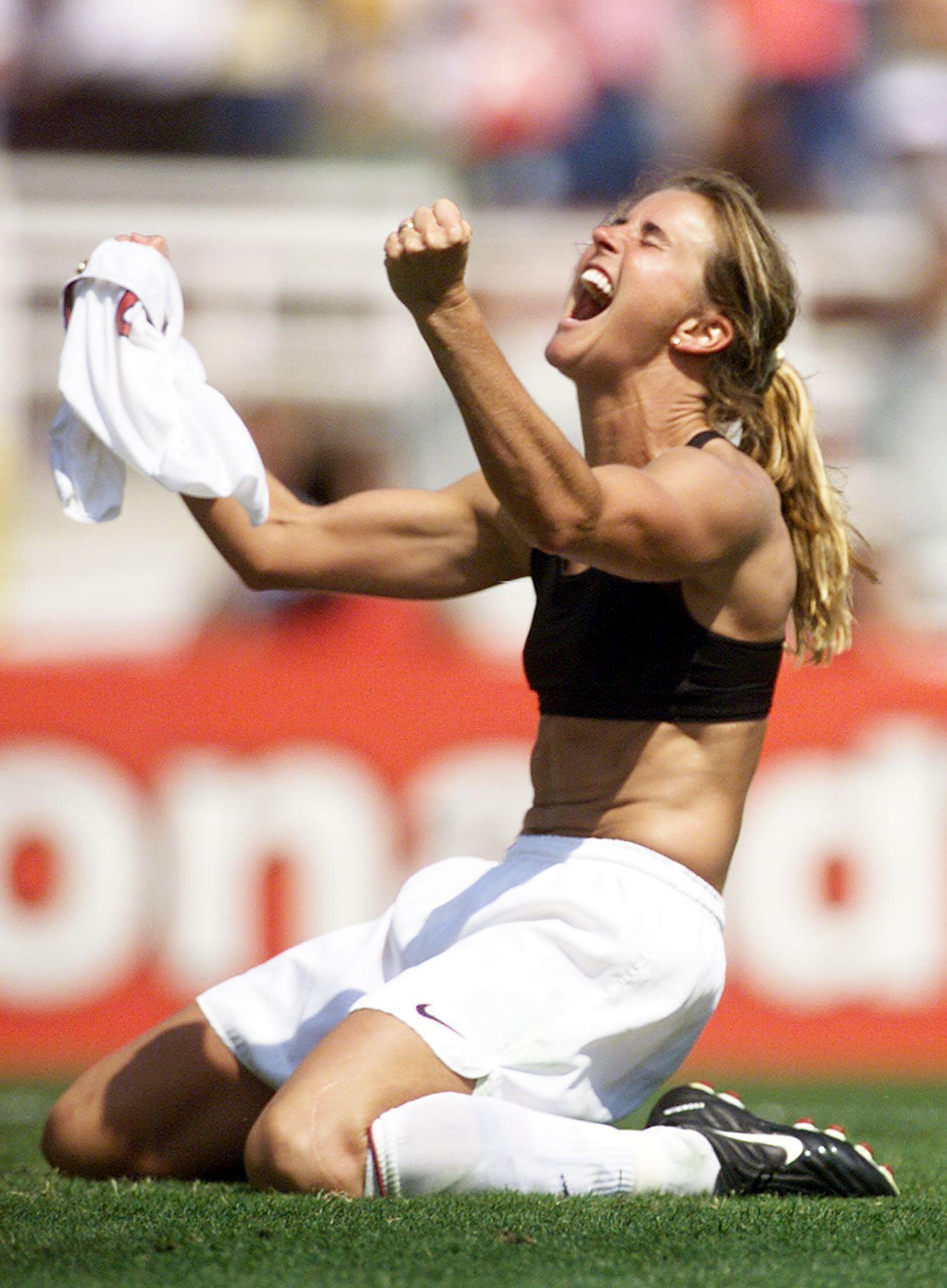Women’s World Cup: If VAR penalty re-takes are right, why do they feel so wrong?
Technology and rule changes combine to shine a new light on old habits

Your support helps us to tell the story
From reproductive rights to climate change to Big Tech, The Independent is on the ground when the story is developing. Whether it's investigating the financials of Elon Musk's pro-Trump PAC or producing our latest documentary, 'The A Word', which shines a light on the American women fighting for reproductive rights, we know how important it is to parse out the facts from the messaging.
At such a critical moment in US history, we need reporters on the ground. Your donation allows us to keep sending journalists to speak to both sides of the story.
The Independent is trusted by Americans across the entire political spectrum. And unlike many other quality news outlets, we choose not to lock Americans out of our reporting and analysis with paywalls. We believe quality journalism should be available to everyone, paid for by those who can afford it.
Your support makes all the difference.What is your abiding memory of the 1999 Women’s World Cup final? There is surely only one: Brandi Chastain, knees on the turf at the Rose Bowl in Pasadena, shirt in her clenched fist and the sports bra that is now hanging up in her hall on show. She had just scored the penalty which had crowned the United States world champions.
It is the most iconic image in the history of the women’s game, yet runners-up China remember a very different moment. Liu Ying was the only player who failed to score her penalty in the 5-4 shoot-out. It was saved by Briana Scurry, the United States goalkeeper, but only after Scurry had dashed at least three yards off her line.
The following day, Chinese newspapers printed frame-by-frame photographs of Scurry’s gamesmanship, all under incredulous headlines. “It’s only cheating if you get caught,” she would mischievously tell The Los Angeles Times. In response, China’s goalkeeper Gao Hong said at least her American counterpart was “honest”.
Two decades on, it is difficult to imagine Scurry escaping the attention of the officials again, particularly after VAR penalised Chiamaka Nnadozie’s minor infraction of the same rule and left Nigeria’s World Cup hopes teetering on a ledge. The decision to allow Wendie Renard to retake France’s penalty was correct, it seems. So why does it feel so wrong?
Firstly, we should clarify why it was a correct decision, at least by the letter of the law. The fact Renard struck her kick wide is irrelevant. If the goalkeeper commits an offence on a penalty kick and the penalty is missed, it has to be retaken and the goalkeeper has to be cautioned. That is precisely what happened.
Secondly, though many are right to point out that the rules have changed, they have arguably been relaxed rather than tightened for this offence. Whereas the rule book previously read that goalkeepers had to “remain on the goal-line” when facing a penalty, the laws now state that “only” one foot has to be on the line at the time the kick is taken.
Nnadozie’s feet were both beyond the line when Renard struck the ball. Not by much, and not nearly as much as Scurry, but beyond the line still. Even by the old rules, she should be penalised. Unfortunately, it appears to be a case of an unintentional mistake by a young goalkeeper in a pressure moment.
So why the uproar? The difference is VAR, the 21st century scrutiny it has brought to a 156-year-old rulebook, and the new technology’s insistence that football should be judged by objective rather than subjective measures.
At the last men’s World Cup, Igor Akinfeev, Kasper Schmeichel, Ali Beiranvand and Danijel Subasic all produced important penalty saves after coming off their goal-line. Yet only Beiranvand and Schmeichel gained a clear advantage and none of the four goalkeepers were penalised, despite VAR being in place.
The ‘one foot’ rule is designed to help change that. As pointed out, it codifies some leeway for goalkeepers, but it also means their conduct on penalty kicks will now be watched ever more closely. As the International Football Association Board explained upon announcing the change in March, it will make it “easier to identify if both feet are not on the line”.
The new rules also explicitly forbid goalkeepers from standing behind their goal-line and dashing up to it to gain momentum when facing a penalty. Will these alterations work? After less than three weeks since implementation, it is difficult to say. But there are obvious concerns that any half-decent penalty will become incredibly difficult to stop.
A much higher-profile change is to the ‘deliberate’ handball rule and it is another change influenced by VAR. After all, it is difficult for a room of video analysts to contest a referee’s subjective opinion on whether a handball offence was intentional or not. That is a difference of opinion, one difficult to back up by evidence either way.

Handball offences no longer relate to intent but to whether a player’s hands and arms are positioned to make them “unnaturally bigger” or “above shoulder height”. It makes handball an objective rather than subjective offence, though it appears harsh when it punishes clearly accidental incidents like Nicola Docherty’s in Scotland’s opening match against England.
And where VAR has not altered rules at this Women’s World Cup, it has highlighted inadequacies. South Africa’s Nothando Vilakazi and Norway’s Ingrid Engen have both found to their detriment that a clumsy challenge to clear the ball, which catches an opponent in the process, could result in conceding a penalty kick that costs your teams points.
Neither intended to take their opponents out. Both offences were the type of challenge a referee may overlook, knowing the intent was to play the ball. Strictly, however, that interpretation would not stand up to scrutiny, given that the laws state referees are supposed to penalise “careless” as well as “reckless” or “excessive” challenges.
VAR noticed those minor infractions and made them major turning points, just as it spotted a brush off Docherty’s arm that her English opponents did not, just as it caught Nnadozie straying a yard too far. In combination with the new, technology-friendly rule changes, it has had a monumental impact on this World Cup already and not always a reassuring one.

There is the letter of the law and there is the spirit of the law. The latter, you fear, is being lost. The old jumble of absolutes and variable that made up football’s rule book is being eroded by an insistence on black and white, ones and zeros, right and wrong.
The tecnhology is only supposed to prosecute ‘clear and obvious’ errors, yet errors can appear twice as clear and twice as obvious when played at half speed. VAR is a new light shining on old habits, like Scurry’s in the 1999 final, that everyone but the losing side would previously have overlooked.
Join our commenting forum
Join thought-provoking conversations, follow other Independent readers and see their replies
Comments